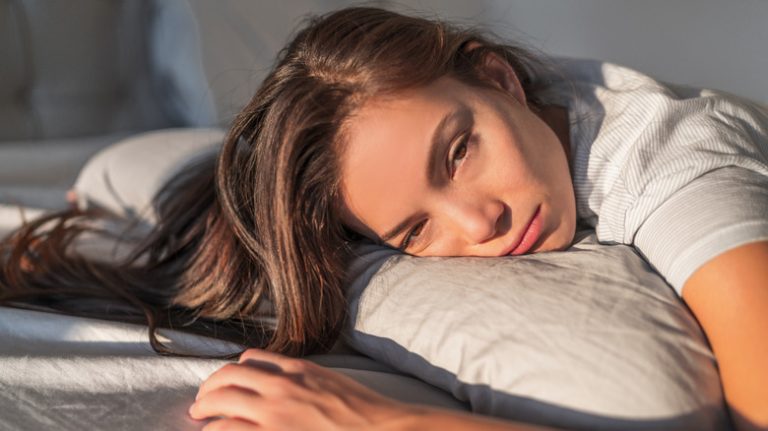We’re all familiar with the feeling of being woken up too early by an alarm clock, pressing snooze once or twice, and then finally dragging ourselves out of bed in search of caffeine.
According to Sleepfoundation.org, nearly a third of adults are getting less than six hours of sleep per night — which is not nearly enough. That spells trouble as sleep deprivation slowly builds up. Sleep deprivation has been linked to a host of physical and mental ills, including depression and anxiety, diabetes, stroke, obesity, and heart disease. As if that’s not enough, too little sleep can also diminish cognitive performance, and increase your chances of being in a serious accident (via Healthline).
But how do you know how much sleep you actually need? Researchers tell us that, although sleep needs change across a lifetime, most adults need seven to nine hours a night. Children and teens need more, and those over 65 need a little less. But charts aside, there are some easy ways to tell if you’re getting enough sleep.
If you wake up without an alarm clock (or even before your alarm goes off) feeling rested and refreshed, you’ve probably gotten enough sleep. If you feel like you could quite easily pass on coffee, are not craving junk food, and are in a good mood, chances are you’ve gotten enough sleep. And, if you’re maintaining your weight — yes, sleep deprivation is even linked to weight gain — that’s also a good sign (via Insider).
If you wake up refreshed and rested, you’ve probably gotten enough sleep

There are a small number of people who, due to genetics, seem to function fine with less than six and a half hours sleep each night. But for most of us, that’s not the case. Cynthia LaJambe, a sleep expert at the Pennsylvania Transportation Institute in Wingate, tells Medical News Today, “Some people think they are adapting to being awake more, but are actually performing at a lower level. They don’t realize it because the functional decline happens so gradually.” If you’re not sleeping enough but think you’re doing fine, it’s completely possible that you’re just used to operating at a sub-par level.
Many people, thanks to alarm clocks, wake up at a set time each day. But getting to bed at the same time each night is less likely. If you’d benefit from more sleep, adjusting your bedtime may be a good place to start. To fall asleep more easily, and have a more restful sleep, experts recommend developing a consistent bedtime routine, getting regular exercise (just not too close to bedtime), staying off of electronics 30 minutes before bed, and not taking long naps during the day.


